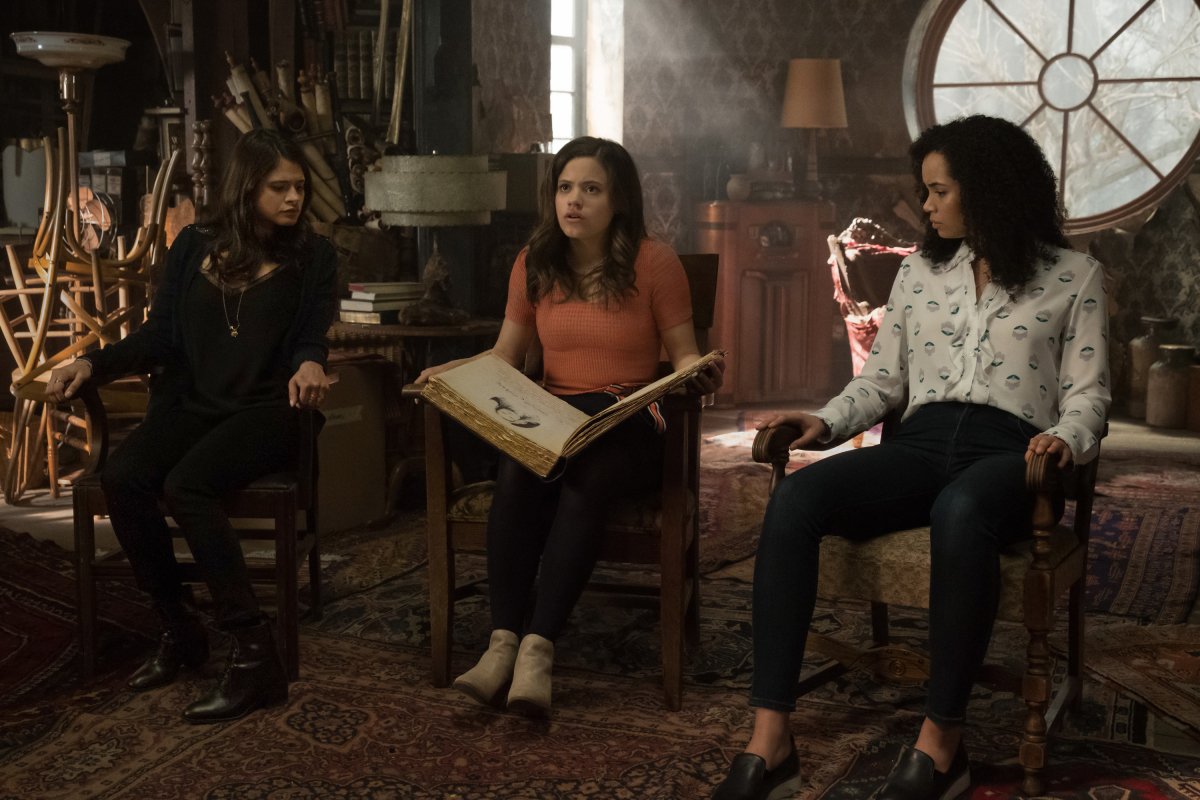Erasure, Latinx Representation, & the Charmed Reboot

Last night, the Charmed reboot series aired its pilot episode, and overall, it was very Tumblr-speak and has a lot of potential, but the controversies surrounding it have done more harm than good to what the series is trying to be.
When you want to frame your show as one of inclusion, diversity, and having a desire to engage in progressive politics—all things this rebooted Charmed series has wanted to project—then I would usually assume you understand that representation and diversity isn’t just about putting people of color on the screen interchangeably. For months, the Charmed reboot has framed itself as a Latina rebooted version of Charmed, and as we reported last week, that is not the case, with only one of the three actresses actually being Latina.
Kate Sanchez, discussing the issue with this misinformation on the site But Why Tho?, spoke about her (and many other POC’s) skepticisms about these diverse new reboots: “I find it hard to see diverse reboots as little more than money grabs that are empty. But even in the emptiness of it all, we keep seeing studios and companies gain social media successes just by announcing casts and instead of looking at the tradition of mistreatment we celebrate them with no critique.”
In looking at the writer’s room for Charmed, it is indeed diverse, and one of the writers/executive producers, Amy Rardin, told The Hollywood Reporter, “we have one token straight white dude on our staff, who is a very lovely, open person. But every other person on our staff is a person of color, is part of the LGBTQ community. I feel like it’s important to have an inclusive staff to tell those stories, to make them personal and specific.”
And if you want to make these stories personal and specific, why not then cast personally and specifically? The reality of what it means to be Afro-Latina/Latina is different and varied, depending on which ethnic background you are from, and all that comes together and is important if you are trying to create accurate representation.
Patrick Gomez, from Entertainment Weekly, wrote in an op-ed that “In another life, I was an actor who regularly went on auditions. Basically, half the time they were in Spanish and half the time they were for characters of Middle Eastern descent. It’s a problem that agents, managers, casting directors, and executives think that having similar skin color makes actors from completely different backgrounds are interchangeable. But the alternative is having a sign on the door that says “Whites Only.” And I think we can all agree that’s not a good look.”
Except it doesn’t have to say, “Whites only.” It can say, “Latinx actors only.” How many people of color get locked out of casting rooms that are casting for “whites only,” even when they don’t explicitly say so? If this series wanted to get the representation credit for writing Latinx characters, then they should make the effort to cast Latinx actors, which is well within their abilities. Hollywood has to do better, not only just to get those “personal and specific” stories, but also for the other deeply important issue: money.
Diversity and representation are also about giving actors of color jobs and career opportunities. Afro-Latinx actors like Gina Torres (Afro-Cuban), have been outspoken about how their Latinx identity gets erased because of their blackness, and the colorism that they have faced because of that. Hell, this clip, Gina Torres is at the American Latino Media Arts (ALMA) Awards, and the reporter speaks to her in English at first.
I certainly don’t wish ill upon Charmed, and for the most part, I was rooting for it, even as I watched the pilot. It wasn’t perfect, but it was just the first episode, and there’s time for it to find its footing. Yet, the fact that there has been so much deliberate misinformation from the powers that be, and so little done to correct that, is a problem.
I hope the show will try to correct these things, because there’s a lot here that could be good, but ultimately, white executives need to realize that our marginalization is not something for them to profit from without having consideration for those identities at every level. They also don’t get to erase or downplay the identities of other women of color to fit them into a colorist box. Erasure is not suddenly representation just because any person of color is cast, especially when the goal is to tell a specific story.
We’ll see where Charmed goes next, but I’d highly recommend listening to Latinx voices while we are having this discussion.
(image: Katie Yu/The CW)
Want more stories like this? Become a subscriber and support the site!
—The Mary Sue has a strict comment policy that forbids, but is not limited to, personal insults toward anyone, hate speech, and trolling.—
Have a tip we should know? tips@themarysue.com